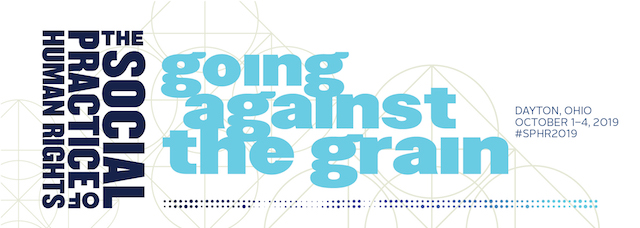Location
Innovations in Economic and Social Rights
Start Date
10-3-2019 9:00 AM
End Date
10-3-2019 10:30 AM
Keywords
human rights, economic inequality, social movements, South Africa, mining
Abstract
The dramatic rise in socioeconomic inequality produced by neoliberal globalisation has provoked a crisis of confidence in the human rights community and inspired a wave of debate about whether human rights have anything meaningful to offer in advancing economic justice. The pessimistic view argues human rights are inadequate for challenging socioeconomic inequality because they are too closely aligned to Western liberalism and too uncritical of the rise of capitalism. The more optimistic view does not dismiss these critiques entirely. It argues that they are only valid for particular (arguably dominant) types of human rights praxis, however. Failing to acknowledge this reproduces Global North bias and stunts our ability to learn from the diverse ways grassroots groups and social movements mobilise human rights “promiscuously”, as Amy Kapczynski puts it, in order to build power locally.
Nevertheless, academic literature exploring the political economy of human rights praxis in the Global South remains relatively thin and is largely literature-based. To contribute to this literature, as well as to pragmatic debates about how the human rights community can better address the challenge of economic inequality, this paper investigates this praxis in greater depth. It is based on qualitative community-based research with social movement activists from mining affected communities in South Africa.
South Africa provides an insightful context for examining how social movements leverage human rights discourse in their struggles for economic justice. On the one hand, South Africa has some of the world’s strongest protections for socioeconomic rights. On the other, it remains one of the most unequal countries in the world. To gain a deeper understanding of this paradox, the paper explores how activists conceptualise inequality and the role of economic power in shaping it; the discourses they draw on; and the forms of political expression they employ to contest economic power.
Author/Speaker Biographical Statement(s)
Allison Corkery is a 2018-19 Atlantic Fellow for Social and Economic Equity, based at the International Inequalities Institute at the London School of Economics. Since 2010, she has worked with the Center for Economic and Social Rights, in New York, where she directs the Rights Claiming and Accountability Program. The program works with human rights activists around the world to strengthen research in order to support more strategic and evidence-based advocacy on rights deprivations and inequalities. She has written extensively about the need to adopt a more interdisciplinary outlook and to incorporate more quantitative approaches in human rights research, in both academic and non-academic publications. Allison holds a BA and LLB from the University of New South Wales and an LLM from Columbia Law School. As part of her fellowship, she is currently completing an MSc in Inequalities and Social Science at the London School of Economics.
Included in
Civic and Community Engagement Commons, Human Rights Law Commons, Politics and Social Change Commons
How Can Human Rights Activism Help Tackle Economic Inequality? Lessons from Mining Affected Communities in South Africa
Innovations in Economic and Social Rights
The dramatic rise in socioeconomic inequality produced by neoliberal globalisation has provoked a crisis of confidence in the human rights community and inspired a wave of debate about whether human rights have anything meaningful to offer in advancing economic justice. The pessimistic view argues human rights are inadequate for challenging socioeconomic inequality because they are too closely aligned to Western liberalism and too uncritical of the rise of capitalism. The more optimistic view does not dismiss these critiques entirely. It argues that they are only valid for particular (arguably dominant) types of human rights praxis, however. Failing to acknowledge this reproduces Global North bias and stunts our ability to learn from the diverse ways grassroots groups and social movements mobilise human rights “promiscuously”, as Amy Kapczynski puts it, in order to build power locally.
Nevertheless, academic literature exploring the political economy of human rights praxis in the Global South remains relatively thin and is largely literature-based. To contribute to this literature, as well as to pragmatic debates about how the human rights community can better address the challenge of economic inequality, this paper investigates this praxis in greater depth. It is based on qualitative community-based research with social movement activists from mining affected communities in South Africa.
South Africa provides an insightful context for examining how social movements leverage human rights discourse in their struggles for economic justice. On the one hand, South Africa has some of the world’s strongest protections for socioeconomic rights. On the other, it remains one of the most unequal countries in the world. To gain a deeper understanding of this paradox, the paper explores how activists conceptualise inequality and the role of economic power in shaping it; the discourses they draw on; and the forms of political expression they employ to contest economic power.



